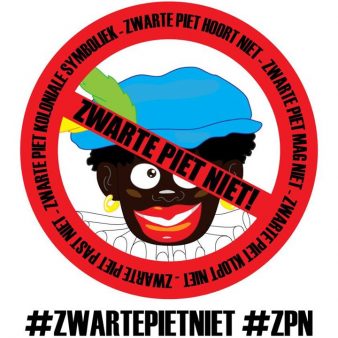Changing minds through argumentation: Black Pete as a case study
22 October 2018
Views on the efficacy of argumentation to change minds in public discourse vary widely. On the one hand, there is a long-standing tradition that emphasizes the significance of argumentation and deliberation for public and civic life (Mill, Habermas etc.), in particular in resolving disagreements and leading to consensus. On the other hand, the well-documented phenomenon of group polarization suggests that attempts to change minds through argumentation are futile. What to make of this conundrum?
One conclusion that can be drawn in view of the conflicting evidence is that argumentation has the potential to change minds, but only against the background of specific circumstances; if these circumstances are not in place, a process of argumentation may well have the opposite effect, namely that of giving rise to more dogmatism and dissent. What is specific to argumentation as opposed to other means to change minds (e.g. propaganda) is that, ideally at least, through argumentation people may change their minds by means of reasons, which they reflect upon and come to embrace. Thus understood, argumentation promotes and supports epistemic autonomy, whereas some other forms of influencing people’s opinions change minds by non-epistemic means. But what are the conditions required for argumentation to have the potential to change minds by means of a transfer of epistemic reasons?
This is precisely the question that I will address in the next five years within the ERC-funded project ‘The Social Epistemology of Argumentation’. I will be developing a conceptualization of argumentation as epistemic exchange, which is inspired by a framework in social psychology and sociology known as social exchange theory. Social exchange theory (and its many descendants such as interdependence theory and affect theory) investigates human interactions as processes of negotiated exchanges, where resources of different kinds can be exchanged so as to promote the well being of all parties involved. As such, values such as trust, fairness, and reciprocity are crucial for these relations as they unfold overtime. By considering the findings from social exchange theory on the conditions under which successful exchanges take place, I will attempt to identify conditions under which successful epistemic exchange through argumentation is likely to occur—that is, situations in which interlocutors are willing to give and receive epistemic resources such as reasons, justifications, objections, defeaters etc. in good faith.
One of the case studies of the project is the public debate around the polemic figure of Black Pete, a folk character very popular in the Netherlands. Black Pete is presented as the servant of St. Nicholas, and is a pervasive character in the massively popular St. Nicholas festivities in early December. The festivities are meant in particular for children, who relish in the gifts they receive but also in the playful rituals involved. Black Pete, the servant, is traditionally represented with stereotypical racialized features associated with sub-Saharan Africans and their descendants: black face, curly hair, thick red lips. (The character is typically played by white people in blackface.) While there have been expressions of concern with what many see as inexcusable racist undertones in the character for decades, in recent years the polemic has intensified: critics are vocal in the press and on social media; protests are regularly organized demanding that the tradition be significantly changed, under the slogan ‘Black Pete is racism’.
At first sight, it may seem that these protests and criticisms have only led to further polarization in the debates: many defenders of the tradition now feel much more strongly about it than they did before, and take offense at accusations of racism. However, there have been some noticeable changes as well: for example, in a number of cities (The Hague, Rotterdam, Amsterdam), the wide majority of primary schools (84%) decided to exclude the racialized representation of Pete from their celebrations (opting for example for Petes whose faces are covered with ‘soot’ from the chimneys that they allegedly climb up and down to bring presents). Moreover, polling data suggest that, in past years, roughly 5% of people per year change their minds on the acceptability of the tradition, and join the critical camp (which remains a significant minority): while in 2013 89% people were against changes, in 2017 this number went down to 68% (according to the research described here). Thus, it does seem as though the arguments by critics are changing at least some people’s minds.
It might be thought that those who change their minds about this tradition are in fact altering some of their basic moral values such as equality and respect for differences. But I think a good case can be made for a more straightforwardly epistemic (as opposed to ethical/moral) account of these changes. In many cases, it seems that people change their position with respect to the tradition mostly because they come to know things that they did not know before, such as: the negative experiences that children of color have during the festivities; the many transformations that the figure has undergone since the 19th century; the fierce critique of blackface in other countries (in particular the US); the embedding of the tradition in the colonial history of the Netherlands. Indeed, by listening to the arguments put forward by critics, some former supporters of the tradition seem to overcome (to some degree at least) the epistemic state aptly described by Charles Mills as white ignorance: “an ignorance among whites—an absence of belief, a false belief, a set of false beliefs, a pervasively deforming outlook—that [is] not contingent but causally linked to their whiteness.” (Mills 2015, p. 217)
It is true that argumentation doesn’t always succeed in changing minds; but it is not true that argumentation never succeeds in changing minds. The conceptualization of argumentation as epistemic exchange has the potential to explain these different outcomes. What’s more, it has the potential to explain when argumentation is likely to lead to successful epistemic exchange: when arguers offer epistemic resources that are perceived as valuable and trustworthy by their interlocutors, and when interlocutors are willing to truly attend to these arguments even when they clash with their own entrenched beliefs. Even if these circumstances are not easily obtained, it is worth reflecting on how to cultivate intellectual habits and social structures that provide the right background for fruitful epistemic exchange through argumentation. (I’ll report back as soon as I have more concrete findings to share!)
Picture Courtesy of Zwarte Piet Niet
Comments
1 comment
Comments are closed.
- October 2025
- September 2025
- August 2025
- July 2025
- June 2025
- May 2025
- April 2025
- March 2025
- February 2025
- January 2025
- December 2024
- November 2024
- October 2024
- September 2024
- August 2024
- July 2024
- June 2024
- May 2024
- April 2024
- March 2024
- February 2024
- January 2024
- December 2023
- November 2023
- October 2023
- September 2023
- August 2023
- July 2023
- June 2023
- May 2023
- April 2023
- March 2023
- February 2023
- January 2023
- December 2022
- November 2022
- October 2022
- September 2022
- August 2022
- July 2022
- June 2022
- May 2022
- April 2022
- March 2022
- February 2022
- January 2022
- December 2021
- November 2021
- October 2021
- September 2021
- August 2021
- July 2021
- June 2021
- May 2021
- April 2021
- March 2021
- February 2021
- January 2021
- December 2020
- November 2020
- October 2020
- September 2020
- August 2020
- July 2020
- June 2020
- May 2020
- April 2020
- March 2020
- February 2020
- January 2020
- December 2019
- November 2019
- October 2019
- September 2019
- August 2019
- July 2019
- June 2019
- May 2019
- April 2019
- March 2019
- February 2019
- January 2019
- December 2018
- November 2018
- October 2018
- September 2018
- August 2018
- July 2018
- June 2018
- May 2018
- April 2018
- March 2018
- February 2018
- January 2018
- December 2017
- November 2017
- October 2017
- September 2017
- August 2017
- July 2017
- June 2017
- May 2017


“succeeds in changing minds”
“likely to lead to successful epistemic exchange”
“fruitful epistemic exchange”
Such phrasings are dubious. Are you talking about “plausible argumentation” or “successful argumentation”? The former can be successful or not. The latter can be plausible or not. The former is epistemo-logical and perhaps also ethical, the latter is social.